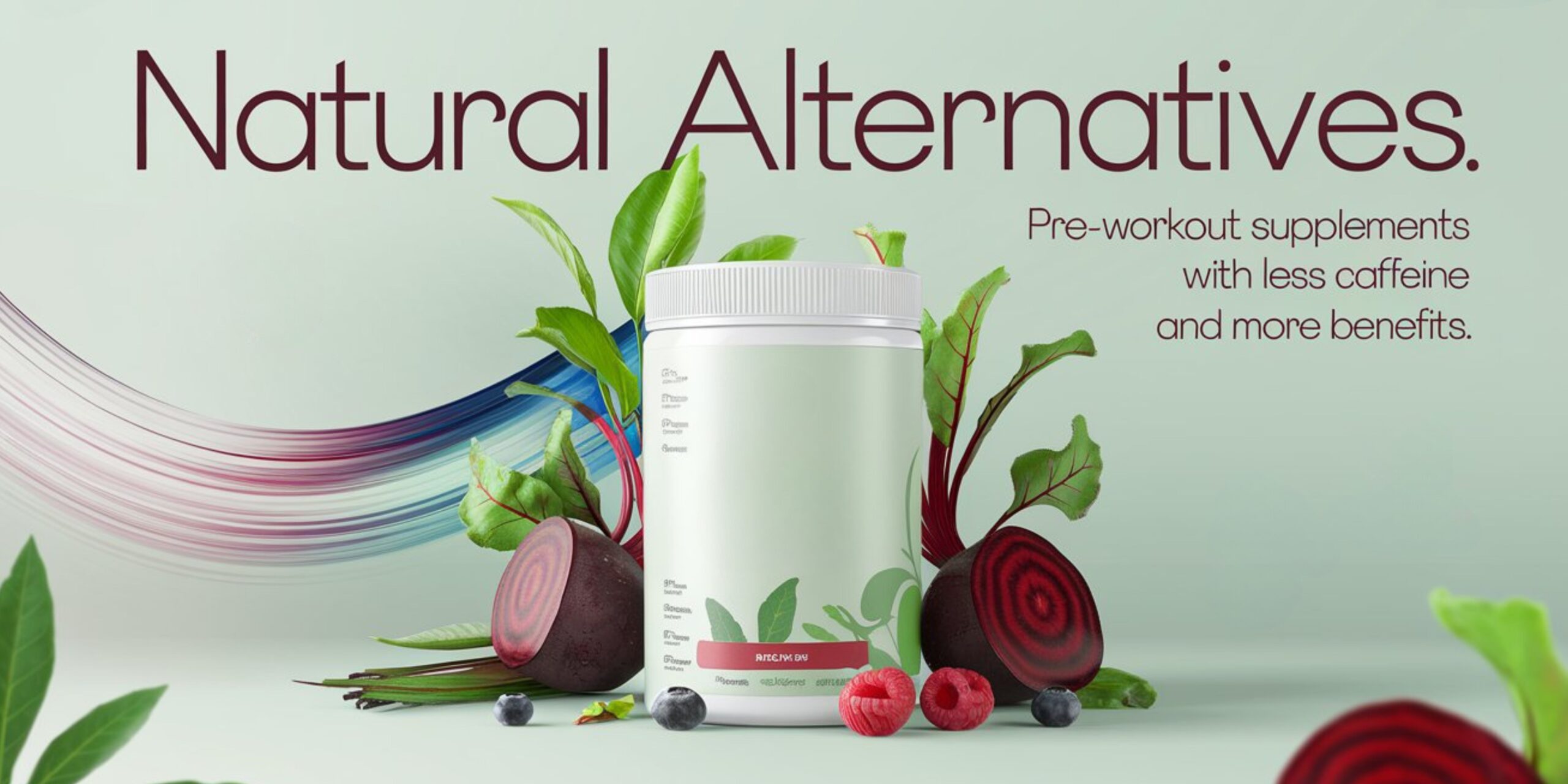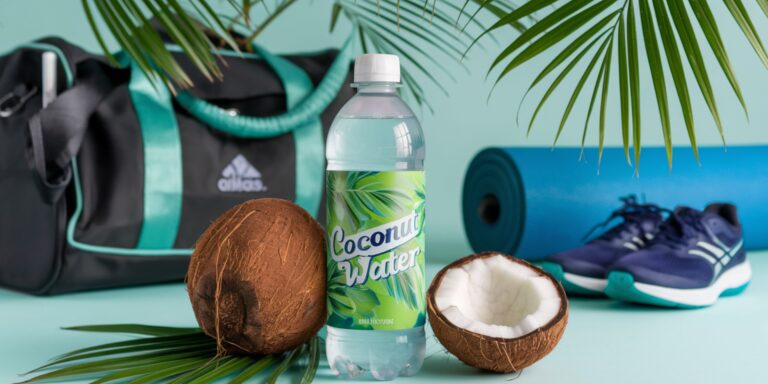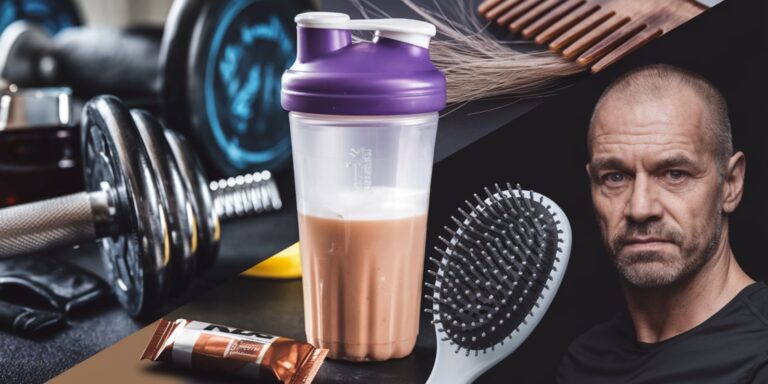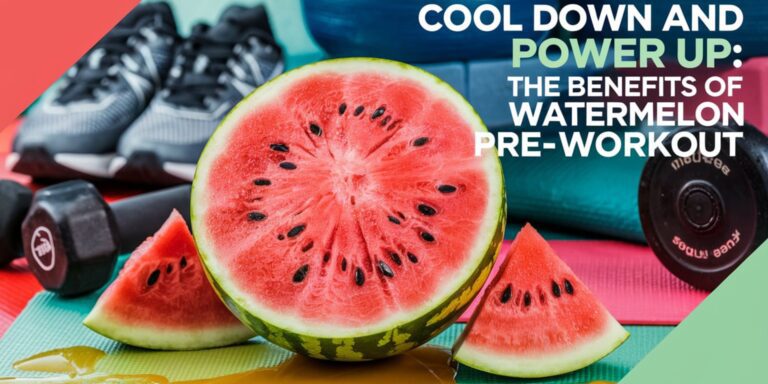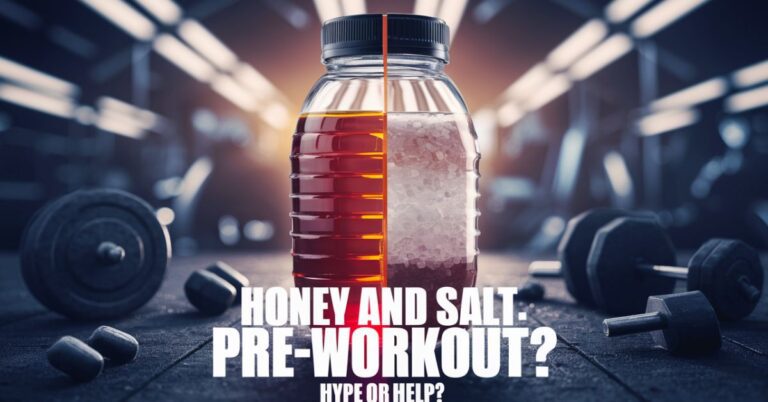Natural Alternatives: Pre-Workout Supplements with Low Caffeine and More Benefits
Introduction
When it comes to pre-workout supplements, caffeine has long been the star ingredient. Known for its ability to boost energy, enhance focus, and improve physical performance, caffeine is commonly used by athletes and fitness enthusiasts alike. However, many people are beginning to seek out alternatives that offer the benefits of a pre-workout without the drawbacks of high caffeine content. These side effects can include jitters, anxiety, insomnia, and the dreaded post-workout crash. For those looking to sustain energy naturally, low-caffeine pre-workout supplements have become an increasingly popular choice.
This article explores the natural alternatives to traditional pre-workouts that provide similar, if not superior, benefits. Whether you’re sensitive to caffeine or simply want a cleaner energy boost, we’ll cover key ingredients and low-caffeine formulas that can still give you that performance edge in the gym.
Understanding the Role of Caffeine in Pre-Workouts
Caffeine is a powerful stimulant that affects the central nervous system, making it a common choice in pre-workout supplements. It helps to increase alertness, reduce the perception of fatigue, and improve reaction time. In moderate doses, caffeine can lead to improved workout performance, especially during endurance exercises and high-intensity training sessions.
However, the stimulant is not without its drawbacks. For many, excessive caffeine can cause unwanted side effects such as increased heart rate, anxiety, and trouble sleeping. Additionally, the “crash” that follows a caffeine high can leave you feeling drained shortly after your workout. These reasons drive people to look for natural pre-workout alternatives that deliver energy without the downsides of overstimulation.
The Benefits of Natural Pre-Workout Alternatives
Opting for a low-caffeine or caffeine-free pre-workout doesn’t mean sacrificing performance. Many natural supplements use ingredients that enhance energy, focus, and endurance without the adverse effects of caffeine overload. These natural alternatives can often provide a more sustained energy release, preventing sudden crashes and promoting overall well-being.
- Better Focus and Energy – Natural ingredients like nootropics and adaptogens can improve cognitive function, ensuring you remain sharp and focused during your workout. These ingredients also help with energy regulation without overstimulating the nervous system.
- Reduced Jitters and Anxiety – A major benefit of low-caffeine pre-workouts is the absence of the jittery sensation commonly associated with caffeine. This is ideal for those prone to anxiety or who want a more balanced energy experience.
- Improved Sleep – High-caffeine supplements can interfere with sleep, especially if taken later in the day. Natural pre-workouts allow you to maintain your sleep cycle while still benefiting from improved workout performance.
Key Ingredients in Low-Caffeine Pre-Workouts
Natural pre-workout supplements focus on ingredients that work synergistically to promote energy, focus, and endurance. Let’s take a closer look at some of the most common and effective ingredients found in low-caffeine options:
- Adaptogens for Stress and Endurance
Adaptogens are herbs and plants that help the body adapt to stress and improve stamina. Common adaptogens include:- Ashwagandha: This herb helps reduce stress and anxiety while improving endurance and strength.
- Rhodiola Rosea: Known for enhancing endurance and reducing fatigue, Rhodiola is ideal for those looking for long-lasting energy.
- Nootropics for Focus and Mental Clarity
Nootropics, or cognitive enhancers, can improve focus and clarity without overstimulating the body. Key examples include:- L-Theanine: Found in tea leaves, L-Theanine promotes relaxation without drowsiness and works well when paired with low doses of caffeine.
- Lion’s Mane Mushroom: A natural nootropic that enhances cognitive function and supports neural health, Lion’s Mane is becoming increasingly popular in pre-workout formulas.
- Natural Energy Boosters
Many natural pre-workouts rely on plant-based ingredients for energy and endurance, such as:- Beetroot Powder: A rich source of nitrates, beetroot improves blood flow, oxygen delivery, and endurance during workouts.
- Cordyceps: This medicinal mushroom is known for boosting energy levels and oxygen utilization, making it ideal for aerobic exercise.
Comparing Caffeine-Free vs. Low-Caffeine Supplements
The debate between caffeine-free and low-caffeine pre-workouts comes down to individual preferences and goals. Low-caffeine pre-workouts usually contain minimal doses (often under 100 mg), providing a mild boost without the potential side effects of traditional high-caffeine formulas. These supplements are perfect for those who still enjoy a slight stimulant effect but want to avoid the jittery sensation that comes with larger caffeine doses.
On the other hand, caffeine-free supplements rely entirely on natural ingredients to boost energy, endurance, and mental clarity. Ingredients like adaptogens, nootropics, and nitric oxide boosters (such as beetroot) help improve blood flow, oxygenation, and focus without needing caffeine at all. Athletes who need long-term, sustained energy for endurance sports often find these natural alternatives better for overall performance and recovery.
Ultimately, choosing between low-caffeine and caffeine-free pre-workouts depends on your sensitivity to caffeine, workout intensity, and long-term fitness goals. If you’re training later in the day or are sensitive to stimulants, caffeine-free options might be the better choice. On the other hand, if you still enjoy a light caffeine boost without the crash, low-caffeine supplements offer a balanced solution.
Top Natural Pre-Workout Supplements with Less Caffeine
Here are some of the best low-caffeine or caffeine-free pre-workout supplements that offer a clean energy boost and enhanced performance.
- Transparent Labs Stim-Free Pre-Workout
- Key Ingredients: Citrulline Malate, Beta-Alanine, Betaine, and more
- Benefits: Transparent Labs offers a completely stimulant-free pre-workout designed to maximize endurance, strength, and recovery. Citrulline Malate enhances nitric oxide production for better blood flow, while Beta-Alanine helps delay muscle fatigue during high-intensity exercise.
- Legion Pulse Caffeine-Free Pre-Workout
- Key Ingredients: Alpha-GPC, Betaine, Citrulline, L-Ornithine
- Benefits: Legion Pulse provides mental clarity, strength, and endurance without relying on caffeine. Alpha-GPC is a nootropic that enhances focus, while Citrulline improves blood flow and muscle endurance. This formula is ideal for anyone wanting a strong performance boost without overstimulation.
- Optimum Nutrition Amino Energy
- Key Ingredients: Amino acids, L-Carnitine, Green Tea Extract (low caffeine content)
- Benefits: This pre-workout uses amino acids and a small dose of natural caffeine from green tea to provide an energy boost. L-Carnitine supports fat metabolism and endurance, making it a great option for those seeking moderate stimulation and recovery benefits.
Natural Alternatives to Caffeine-Heavy Energy Drinks
Caffeine-heavy energy drinks are notorious for giving quick energy followed by a crash. Natural, plant-based alternatives offer a cleaner, more sustained source of energy without the artificial sweeteners, additives, or high caffeine content often found in traditional energy drinks.
- Natural Energy Drinks
Natural energy drinks are gaining popularity as they use ingredients like green tea extract, matcha, and plant-based stimulants to offer a mild, steady boost of energy. Many of these drinks are low in caffeine but packed with antioxidants, amino acids, and electrolytes for hydration and recovery. - Homemade Energy Drinks
If you prefer complete control over what goes into your body, making your own natural energy drink is an easy and effective option. Ingredients like coconut water, beet juice, and honey are perfect for creating a natural energy-boosting drink that supports hydration, recovery, and endurance. For example, mixing beet juice with coconut water provides natural nitrates and electrolytes for better blood flow and hydration during your workout. - Low-Caffeine Store-Bought Options
Some energy drinks on the market now focus on providing a low-caffeine alternative while still offering the performance-boosting effects of natural ingredients. These drinks often contain green tea or yerba mate for a lighter caffeine content paired with other energy-supporting ingredients like vitamins, amino acids, and plant extracts.
How to Choose the Best Low-Caffeine Pre-Workout for You
Selecting the right low-caffeine pre-workout supplement depends on your individual fitness goals, sensitivities, and workout style. Here are key factors to consider:
- Fitness Goals
Your choice of pre-workout should align with what you hope to achieve during your training sessions. If your focus is on endurance or cardio-based workouts, opt for a formula with ingredients that enhance oxygen delivery and stamina, such as beetroot or cordyceps. For strength training, look for supplements that contain muscle endurance boosters like Beta-Alanine or Citrulline Malate. - Ingredient Profiles
Read labels carefully and prioritize natural, whole ingredients over synthetic additives or excessive stimulants. Adaptogens like Rhodiola Rosea, amino acids like L-Citrulline, and nootropics like L-Theanine can provide a more sustained energy source without the crash that follows stimulant-heavy products. - Caffeine Sensitivity
If you are sensitive to caffeine or workout late in the day, you might prefer a caffeine-free supplement to avoid disrupting your sleep. Low-caffeine options are ideal for those who want some stimulation but want to steer clear of side effects like anxiety or restlessness. - Avoid Artificial Additives
Many pre-workouts are loaded with artificial sweeteners, colors, and preservatives. These ingredients may negatively affect your digestion or overall health. Choosing a clean, natural pre-workout supplement can reduce the risk of side effects and provide a healthier energy boost.
Timing and Dosage: Maximizing the Effectiveness of Natural Pre-Workouts
Even with natural, low-caffeine pre-workouts, the timing and dosage can make a significant difference in their effectiveness. Here’s how to maximize their benefits:
- When to Take Pre-Workouts
For most people, taking a pre-workout supplement about 30 to 45 minutes before exercise allows enough time for the ingredients to kick in. This gives your body ample time to absorb key nutrients that improve energy, focus, and endurance. Pay attention to your body’s response, as some supplements might need to be taken slightly earlier or later, depending on the ingredients. - Understanding Proper Dosages
Always follow the recommended dosages on the product label. While natural supplements tend to be gentler on the system, taking too much can still cause unwanted side effects. For low-caffeine pre-workouts, it’s essential to avoid stacking them with other caffeinated products like coffee or energy drinks, as it could push your total caffeine intake higher than expected. - Cycling Off Pre-Workout Supplements
To maintain the effectiveness of pre-workout supplements, many athletes practice “cycling” on and off them. Cycling involves using a pre-workout for several weeks and then taking a break to prevent your body from becoming too accustomed to the ingredients. This helps maintain sensitivity to key compounds like adaptogens and nootropics, ensuring the supplement continues to deliver results over time.
Case Studies: Athletes Who Thrive on Low-Caffeine Pre-Workouts
Many athletes have made the switch to low-caffeine or caffeine-free pre-workouts and have experienced tremendous success. Here are a few real-world examples:
- Endurance Athletes
Long-distance runners and cyclists often opt for natural pre-workouts like beetroot powder to improve blood flow and oxygen delivery. These athletes have reported improvements in stamina and reduced fatigue during long training sessions without relying on caffeine for energy. - Strength Athletes
Weightlifters and bodybuilders who need sustained energy for heavy lifting are often drawn to adaptogen-based pre-workouts. Athletes using Rhodiola Rosea and Ashwagandha in their supplements have reported enhanced focus, stress reduction, and greater muscle endurance. - Fitness Enthusiasts with Caffeine Sensitivities
Many everyday fitness enthusiasts have found low-caffeine pre-workouts to be the perfect balance between energy and mental clarity. These users typically enjoy the focus-boosting effects of nootropics like L-Theanine without experiencing the jittery side effects of traditional high-caffeine supplements.
Addressing Common Misconceptions about Low-Caffeine Pre-Workouts
As low-caffeine pre-workouts grow in popularity, several misconceptions still surround them. Let’s debunk some of the most common myths:
- Myth: “Low-caffeine means low performance”
A widespread belief is that high performance in the gym requires a large amount of caffeine. This simply isn’t true. Many natural pre-workouts use proven ingredients like Citrulline Malate, Beta-Alanine, and adaptogens to support performance, endurance, and muscle recovery without relying on stimulants. These supplements can still provide all the benefits of a traditional pre-workout without the caffeine overload. - Myth: “Natural supplements are less effective”
Some people assume that because a supplement is “natural,” it’s weaker or less potent than synthetic alternatives. However, many natural ingredients like beetroot, adaptogens, and nootropics have been extensively studied and shown to offer significant performance and cognitive benefits. In fact, natural ingredients can provide a more sustainable energy boost, reducing the likelihood of crashes or side effects. - Myth: “You need caffeine for mental clarity in workouts”
While caffeine is a known stimulant that can improve focus, it’s not the only way to achieve mental clarity during exercise. Nootropics like L-Theanine, Lion’s Mane, and Alpha-GPC are effective in promoting cognitive function, memory, and focus. These ingredients can help sharpen your mind without the overstimulation that caffeine can cause, making them ideal for long or intense workouts.
DIY Natural Pre-Workout Recipes
If you prefer a hands-on approach and want to control exactly what goes into your pre-workout, making your own natural alternatives is a great option. These recipes feature ingredients that boost energy, improve endurance, and promote recovery without caffeine dependence.
- Beetroot and Coconut Water Power Drink
- Ingredients:
- 1 cup of coconut water
- ½ cup beetroot juice
- 1 tablespoon honey
- Pinch of sea salt
- Benefits: Beetroot is rich in nitrates, which help improve blood flow and oxygen delivery to muscles, while coconut water replenishes electrolytes lost during exercise. Honey provides a natural source of carbohydrates to fuel your workout.
- Ingredients:
- Matcha and Spirulina Energy Boost
- Ingredients:
- 1 teaspoon matcha powder (low in caffeine but rich in antioxidants)
- 1 teaspoon spirulina powder
- 1 tablespoon lemon juice
- 1 cup cold water
- Benefits: Matcha contains a small amount of caffeine for a mild energy boost, while spirulina is a nutrient-dense superfood packed with antioxidants, protein, and B-vitamins to support sustained energy and recovery.
- Ingredients:
- Green Tea and Honey Electrolyte Mix
- Ingredients:
- 1 cup brewed green tea (chilled)
- 1 tablespoon honey
- 1 tablespoon lemon juice
- Pinch of Himalayan pink salt
- Benefits: Green tea offers a lower caffeine option, combined with the hydrating and replenishing effects of honey and electrolytes. This drink provides steady energy without overstimulation and supports hydration during intense workouts.
- Ingredients:
The Future of Pre-Workouts: Moving Toward More Natural Formulas
As fitness trends evolve, the demand for clean, natural supplements continues to grow. More consumers are becoming aware of the potential side effects of high-caffeine supplements and are looking for healthier, sustainable alternatives.
- Growing Demand for Natural Ingredients
The wellness movement is driving consumers to seek out products made from whole, natural ingredients. Brands are responding by creating pre-workout formulas that prioritize plant-based, stimulant-free ingredients, focusing on overall health and performance rather than relying on stimulants. - Trends in Fitness Supplements
In addition to low-caffeine options, there’s a rise in pre-workouts that focus on gut health, hydration, and recovery. Ingredients like probiotics, electrolytes, and adaptogens are making their way into supplements, targeting a holistic approach to fitness. This shift means that pre-workouts aren’t just about energy—they’re about overall well-being and long-term performance. - How Brands Are Responding
Major supplement companies are creating stimulant-free product lines to cater to this new wave of demand. With increasing competition in the fitness industry, brands are focused on delivering clean, transparent, and science-backed products. The shift toward transparency in labeling also gives consumers a clearer understanding of what’s in their pre-workout, allowing them to make informed decisions about their health.
Frequently Asked Questions (FAQs)
- Are low-caffeine pre-workouts safe for everyone?
Yes, low-caffeine and caffeine-free pre-workouts are generally safe for most individuals, especially those who are sensitive to caffeine or looking to avoid stimulants. However, it’s always best to consult with a healthcare professional before trying any new supplement, especially if you have underlying health conditions. - Can I combine low-caffeine supplements with regular coffee?
Yes, you can combine a low-caffeine pre-workout with a small cup of coffee if you want a mild caffeine boost. However, be cautious not to exceed your personal tolerance for caffeine, as too much can still lead to side effects like jitteriness or disrupted sleep. - How quickly do natural pre-workouts take effect?
Like traditional pre-workouts, natural options typically take 30 to 45 minutes to kick in. This depends on the specific ingredients and how your body absorbs them. Adaptogens and nootropics tend to work subtly, improving focus and endurance without an immediate energy jolt. - Are there long-term benefits to using natural pre-workouts?
Yes, many natural ingredients, such as adaptogens and nootropics, offer long-term health benefits, including stress reduction, improved cognitive function, and better physical endurance. Unlike stimulant-heavy supplements, which may lose their effectiveness over time, natural pre-workouts can continue to support performance without requiring larger doses. - Can I use natural pre-workouts for other types of exercise?
Absolutely! Natural pre-workouts can benefit a wide range of activities, including strength training, cardio, yoga, and high-intensity interval training (HIIT). The key is to choose ingredients that support the specific demands of your workout, such as energy for endurance or focus for strength training.
Conclusion
In the quest for better performance in the gym, natural alternatives to high-caffeine pre-workouts are proving to be just as effective, if not superior, for many individuals. These supplements provide sustained energy, focus, and endurance without the side effects of stimulants like caffeine. By focusing on ingredients like adaptogens, nootropics, and plant-based energy boosters, you can enjoy the benefits of a strong workout while avoiding the jitters, anxiety, and crashes that come with traditional pre-workouts.
Whether you’re sensitive to caffeine, looking for cleaner energy sources, or simply trying to optimize your overall health, low-caffeine and caffeine-free pre-workouts are worth considering. As fitness trends continue to shift towards holistic health and well-being, these natural options will likely continue to gain popularity.


